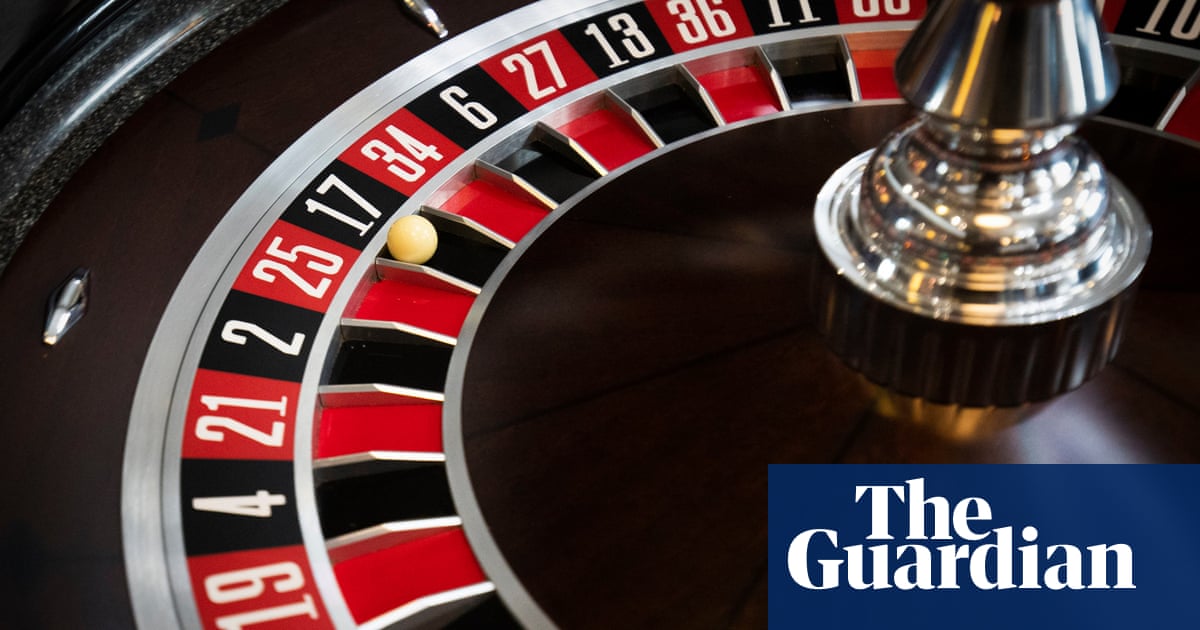Shares in British gambling companies have dropped sharply, reducing the stock market value of large operators by more than £3bn, after the Guardian reported that Treasury officials could tap the sector for between £900m and £3bn in extra taxes.
The chancellor, Rachel Reeves, has come under pressure from two influential thinktanks to raise taxes on the industry, as she pulls every available lever to plug a £22bn “black hole” in the nation’s finances.
Treasury officials working on Labour’s first budget in 14 years, which will be announced on 30 October, are understood to be open to raising the amount of duty paid by an industry that takes in £11bn a year from British punters.
There are two separate proposals, one from the Social Market Foundation (SMF) that would increase online gaming taxes by £900m and another, from the Institute for Public Policy Research (IPPR), that would lift a range of duties levied on the sector by nearly £3bn.
Analysts said the government was unlikely to opt for the higher range of duty but warned that the sector was facing tougher regulation and taxes.
On Friday, after the Guardian reported that the budget could include a tax rise, shares in Flutter, which owns brands including Paddy Power and SkyBet, fell nearly 9% in New York, where it has its primary listing.
When the FTSE opened on Monday, its peers in the publicly listed gambling sector also dropped sharply.
Ladbrokes-owner Entain was down by 14% in early trading, equivalent to a decline in its stock market value of £700m. Flutter was down by a more modest 7.5% but its significantly larger market capitalisation – £30bn compared with Entain’s £4.2bn – meant the fall wiped £2.5bn off its stock price.
Other fallers include the William Hill owner, Evoke, down by 12%, and gambling software maker Playtech, which fell by nearly 2%. There was a 7% fall at Rank, which owns Mecca Bingo but also has online gambling brands.
Between them, shares in gambling companies listed on the FTSE fell by more than £3bn. Bet365, one of the largest gambling operators in the UK, is not listed.
One of the tax plans that Treasury officials are looking at hails from the left-leaning IPPR. The thinktank’s report estimates the government could raise £2.9bn next year – and up to £3.4bn by 2030 – by doubling taxes on “higher harm” products such as online casino games. Last year, the taxes raised £3.3bn, or about £2.2bn excluding lottery duty.
Under the IPPR proposals, the Treasury would leave duties untouched on “lower harm” activities, such as the lottery and bingo. Instead, they argue the chancellor should double taxes such as the 15% general betting duty, levied on high-street bookmakers’ profits.
after newsletter promotion
Remote gaming duty, which affects online operators, is charged at 21% but would be raised to 50% under the IPPR plan.
Another thinktank, the SMF, is working on a more moderate proposal, due to be published on Tuesday, that would double the tax on online gambling companies from 21% to 42%, raising about £900m.
The SMF is backed by Derek Webb, who has emerged as one of Labour’s top five individual donors after giving the party £1.3m since the start of 2023.
Webb, who made his fortune inventing casino games, is the foremost backer of campaigns to reform gambling regulations, including the tax regime governing the sector.
Broker Jefferies said it thought the government was unlikely to opt for very sharp increases on the tax paid by the sector because they would “effectively wipe out listed operator profitability and likely pose an existential threat to many smaller operators”.
Analysts at AJ Bell said the tax proposals provided a “salient reminder of the strengthening headwinds the sector faces in terms of regulation and tax and that this remains a live risk for investors to consider”.

